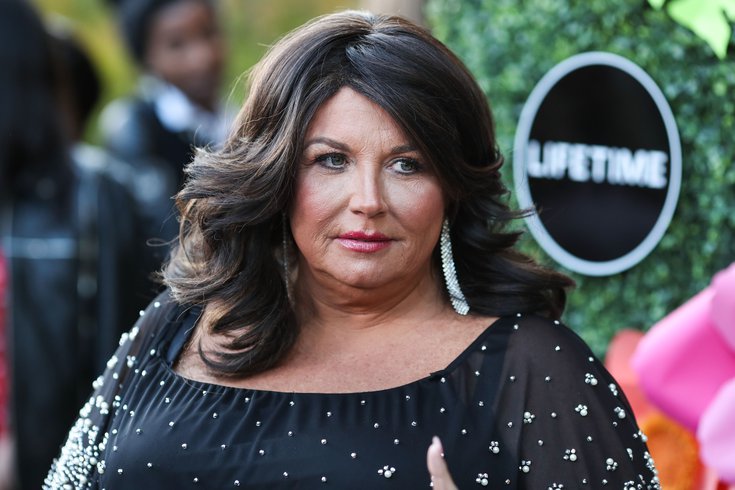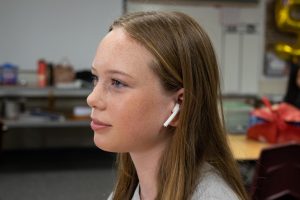The Influence Reality TV Has on Youth
Xavier Collin/Image Press Agency/SIPA USA
Reality TV shows such as Dance Moms rarely actually show the reality of what happens.
February 16, 2023
The Bachelor. Keeping up with the Kardashians. Dance Moms. These shows are all examples of popular reality TV. The truth is, “reality” TV shows are mostly staged. They frequently edit out the normal, real-life actions done by the characters.
“I think it’s a bad influence on kids, but it’s so entertaining to watch,” said Ryan D.
Despite being considered low-quality with poor programming, many kids, teens, and even adults flock toward these shows. However, the genre can also be detrimental to youth, as watching reality TV can be easily confused with the real world.
“I guess teens could watch reality TV and think that’s what’s real, and they could start to act like that,” said Nathaniel G.
Binging the Bachelor
Airing on March 25, 2002, The Bachelor and its spinoffs (The Bachelorette, Bachelor Pad, Bachelor in Paradise, etc.) are some of the most popular reality TV shows. Currently, there are twenty-seven seasons of The Bachelor, with more in production. If it’s a new year, there’s a new Bachelor. The show starts off with around twenty-five romantic interests for the selected bachelor to choose from. He eliminates the candidates he isn’t interested in, and eventually chooses the one at the end.
“The Bachelor is too overdramatic, and not real. People watching it might think it’s real and might start to copy it,” said Nick A.
The candidate’s goal is to capture the Bachelor’s heart. This leads to drama, heartbreak, and car-wreck conflict. Every week, viewers across the world tune in to watch the overdramatized antics and fights surrounding the contestants. Kids and teens may be easily manipulated into believing that this is what love looks like. They could mimic the small screen drama by overplaying their own relationships just for the fun of it.
“When you watch the bachelor, you assume that love happens instantaneously. I’ve been married now, for twenty-seven years, and love grows and changes, you have to be willing to adapt, and I don’t think that’s portrayed in these types of shows,” said Mr. Hernandez.
Time to Keep Up with the Kardashians
Keeping up with the Kardashians is a reality TV show that stars the Kardashian-Jenner family. The show made its first appearance on October 14, 2007. The series focuses on the Kardashian’s lifestyle, and viewers may want to make their own lifestyles similar. This could result in youth attempting to be like them, while the show is primarily staged.
“Say you see this kind of lifestyle, you can compare it to your lifestyle, and end up changing into a worse person than you already were,” said Kaly U.
Dancing with Danger
Dance Moms made its first appearance on July 13, 2011. The show stars Abby Lee Miller, who is the dance girl’s instructor. Abby’s unrelenting style of teaching is aimed toward making her students into stars. She insults the dancers without end and continuously yells at them. The girls’ moms don’t appreciate this, which leads to perpetual arguments between the moms and Abby. Dance Moms’ final episode aired on September 10, 2019.
“Abby would bully the girls relentlessly, affecting their mental health. Kids watching this might think that it’s normal and might act the same,” said Shine A.
The Bachelor, Keeping Up with the Kardashians, and Dance Moms all center around heartbreak, drama, and persistent arguing. Shows like these can effortlessly affect kids and teens. This young audience can start to act like the characters they observe on screen without even realizing it. Youth tend to confuse reality with ‘reality TV,’ allowing the viewer to merge fiction with their life. Without caution, viewers can start to exaggerate their own relationships, cause drama in their life, and argue just for the fun of it.
“Teens could watch this kind of stuff, and take away the wrong things. They can’t separate right from wrong, [which can] affect their lives entirely,” said Mr. Hernandez.
Reality TV stages an impression of real-life action with plenty of over-dramatization. Youth are drawn toward that drama, risking negative influence by the things they see on a screen. Kids, teens, and even adults can be pulled into these fake realities. They get glued to fiction and confuse their own reality with the false reality presented on their screens.






